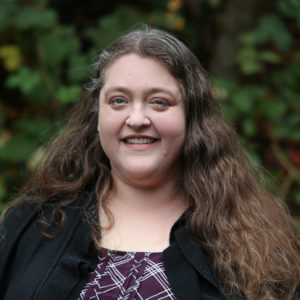Community / Valuing and cultivating connection, belonging, and collaboration.
What does flourishing leadership look like in the real world? Resilient Leaders Project asked alumni of The Seattle School of Theology & Psychology about how they’ve flourished while creating contextually-responsive ministry. In listening to these leaders, we found six common themes–practices and ways of being that other leaders can apply to increase their own flourishing. This blog series will share those themes, one at a time, through the stories of flourishing leaders. To see the other themes and leader profiles, read the Flourishing in Service Report. This week’s theme is community: leaders need relationships in which they can be vulnerable about their experiences and collaborative in service.
 Phil Doud
Phil Doud
MDiv 2013
Life Coach at Heroically
As a life coach, I am driven by the questions of who people are and how they change, develop, and flourish. My work is focused on caring for those in the helping professions: educators, health care and medical professionals, mental health and social service workers, ministers and clergy. The name Heroically is word play. I want people to actually live heroically, taking on world-saving problems in challenging work. And I want to both be a heroic ally, helping the helpers to flourish along the way. Helpers have high rates of stress, compassion fatigue, disillusionment and burnout. To thrive, they need supportive community, safe spaces to grow, struggle, and yes, play. That’s why I’ve launched Heroic Ally Game Groups, inviting people to build community, reflect, and explore identity through a custom tabletop roleplaying game.
Roleplaying games are really storytelling games in which participants assume a contextual identity within a hypothetical setting. The games I lead are meant to be epic, with big stakes and powerful obstacles, giving people practice in taking on overwhelming challenges, handling setbacks, developing agency, and tolerating the distress of not knowing. You take a risk, roll the die, and play with what happens, good or bad.
The collaborative nature of the game helps people learn to depend on community. Groups include reflection time to process things that happened in the game and to discover how a particular character or situation connects to their real lives. Sometimes a werewolf in the game is just a werewolf in the game. But sometimes it’s a metaphor for that wild and ferocious hunger inside. It’s exciting when interpersonal and intrapersonal discoveries found in game play catalyze personal transformation. I have found that I am most alive helping people navigate into where they are most alive.
 Barbara Tantrum
Barbara Tantrum
MACP 2010
Counselor at NorthWest Trauma Counseling
As a specialist in early childhood trauma, I work with kids who have been adopted and adults who had childhood trauma. I also supervise and encourage new therapists, and I have a book coming out in Fall 2020 about parenting kids with trauma. I am myself a parent of six: two kids I gave birth to, and four kids we adopted.
Before I was a therapist I was in full-time campus ministry. As a therapist, it can be less clear that I am doing Christian work. But good counseling embodies Christian values: forgiveness, redemption, wholeness, health. I feel that God loves adoption, and I see myself as an adopted child of God. Science is finding that when a kid has early childhood trauma and PTSD, what overcomes that trauma is having good connection with a caregiver. For me, that is so much a picture of Jesus: what overcomes our trauma is having good connection with Jesus and with other people. I think that is the gospel. That’s the work I do: helping build relationships and helping people find those connections.
A key to my flourishing is connections with other therapists that I’m in practice with, consult with, or do supervision with. I have seen other counselors try to be really independent; usually that does not go well. The people who do well are people who have connections with other people. I would not want to be doing this work by myself. It’s hard because you can’t have community like that without there being conflict, without there being stuff you need to work through. It’s tough, but it’s really worth it in the end to have a community that you can work with, dream with and have cammeraderie with.
 Alex Zarecki
Alex Zarecki
MATC 2016
Worship Music Director, Japanese Baptist Church of Seattle
Flourishing for me includes collaborative energy. I serve with a sense of lower case “p” pastoral; it enables more collaboration with the folks who have been at this church all their lives and with the newer folks who just walked in or found us from Google. This collaboration is especially important in my context of working in a historically Japanese-American church. I am not Japanese-American, I’m European-American, so it’s a little unusual for someone like me to be in such a space.
The fact that I have a team in my workspace makes a tremendous difference. It’s not just me trying to figure things out on my own; I can ask questions and be a student of the context. I’ve learned about the history of the organization, individual people’s histories, what sort of dynamics have existed, why things are the way they are. It’s a practice of collaboration that creates community with my coworkers and laypeople, and I think that sense of community is imperative to doing anything worthwhile.
Music can be a great way to invite everybody into a space. As a church, we’re becoming more multiethnic and confidently intergenerational. We’ve seen that there can be a holding together in the midst of theological diversity because of a greater sense of community. Music and art can help us navigate spaces that are otherwise impasses.
As someone who sees the role of the artist as close to the prophetic tradition, I have found that some social media has been helpful for hearing the voices of other Christians. These other voices reorient me as I am creatively thinking about problem solving and attending to the resistance in my work.
Learn more about Resilient Leaders Project and the Certificate in Resilient Service.


